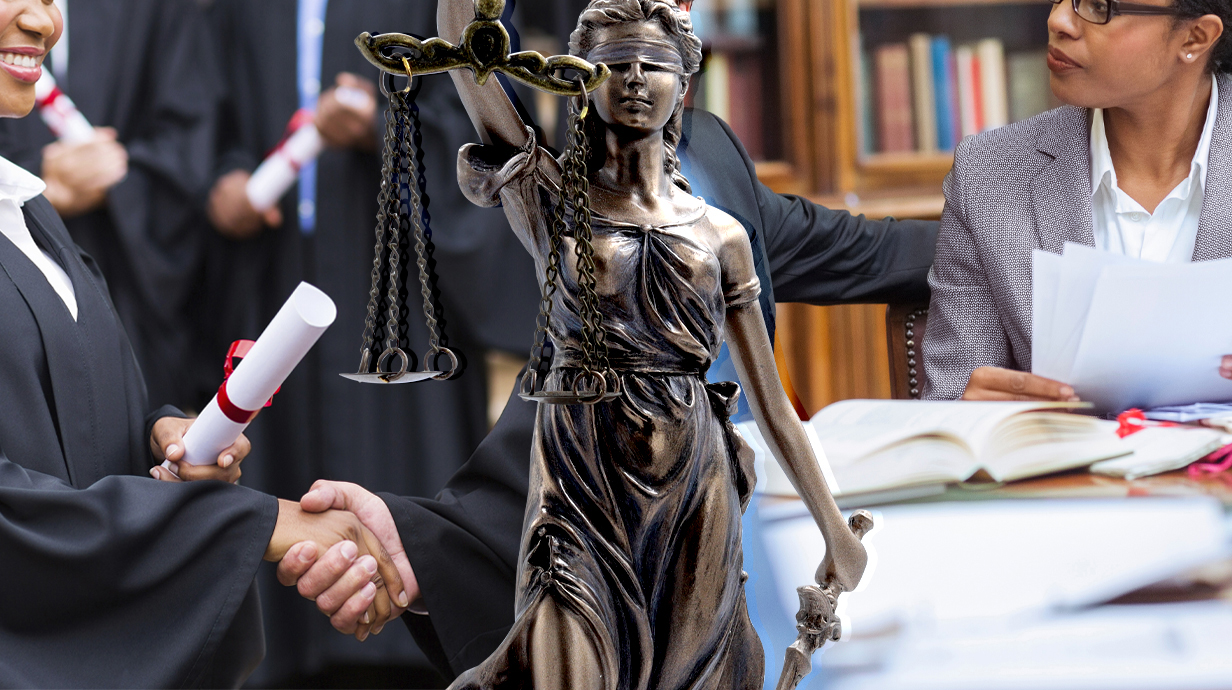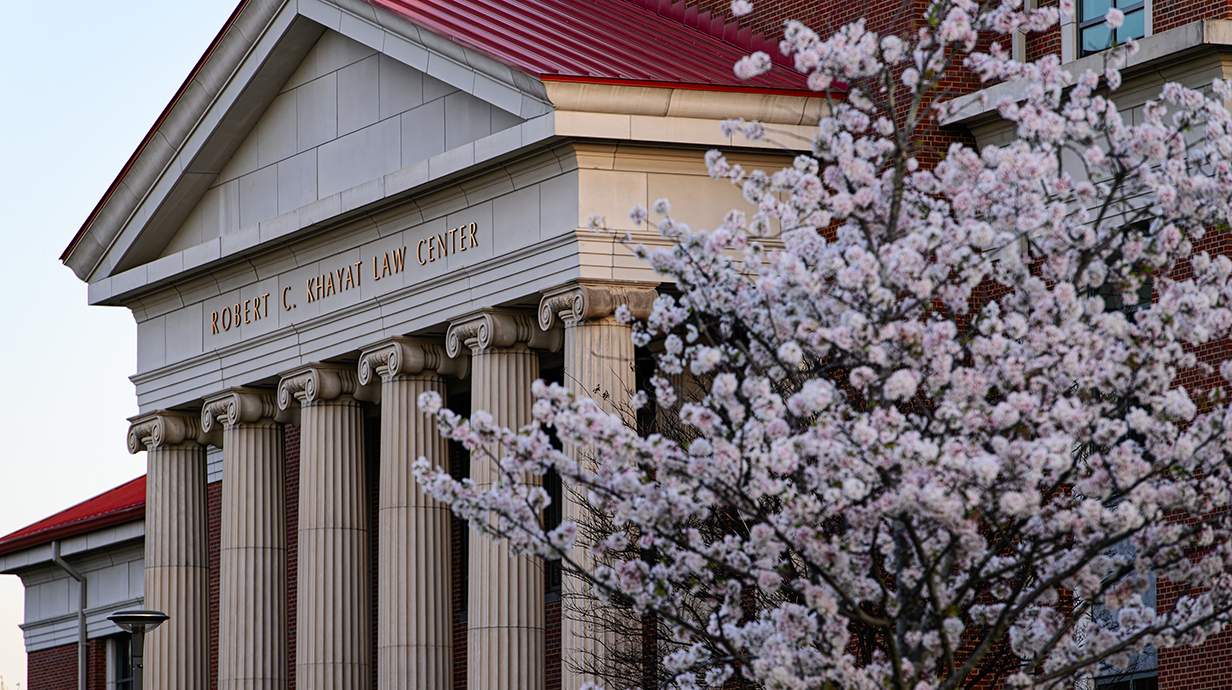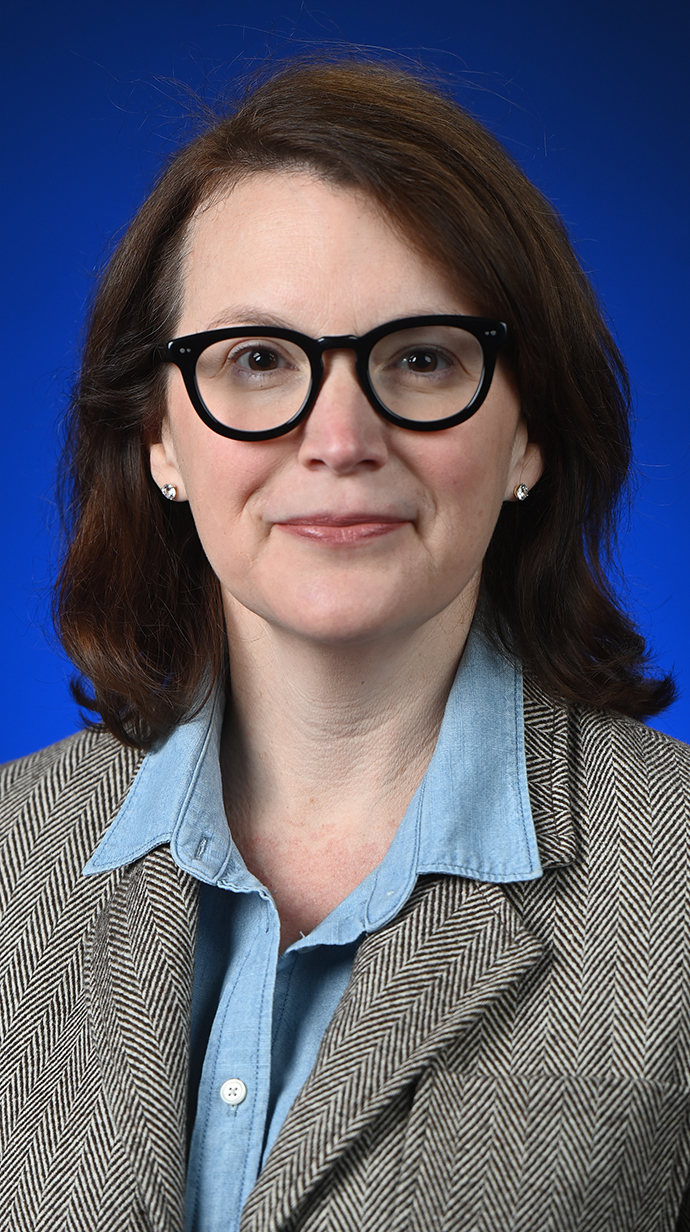Classroom to Chambers: Law School Powers Clerkship Ambitions
Guidance and training help Ole Miss students broaden skills through clerkships

OXFORD, Miss. – University of Mississippi law students are seizing opportunities to become judicial clerks upon graduation, thanks to the careful tutelage of the school's Career Services Office and the school's course offerings.
As a judicial clerk, law school graduates spend one or two years working with a judge and are exposed to a variety of legal issues while gaining experience in legal research and writing. The most desirable clerkships are with the federal judiciary due to their limited availability.
This work is invaluable at strengthening a graduate's skills and knowledge, said Jacorius Williams, a 2022 alumnus from Biloxi. After graduation, Williams clerked for Judge Cynthia Norton of the U.S. Bankruptcy Court for the Western District of Missouri and is working for Judge Taylor B. McNeel of the U.S. District Court for the Southern District of Mississippi.
"This experience gave me a unique perspective and allowed me to see how the process truly works," he said. "I know how the sausage is made.
"I also enhanced my writing, research and analytical skills, but the most important outcome was the lifelong relationships I built."

U.S. News and World Report ranks Ole Miss at No. 8 among public law schools with the most graduates in federal clerkships in the first year following graduation. Photo by Hunt Mercier/Ole Miss Digital Imaging Services
Such federal clerkships have become commonplace for graduates of the School of Law. U.S. News and World Report ranked Ole Miss at No. 8 among public law schools with the most graduates in federal clerkships in the first year following graduation.
The success of getting clerkships selected has helped the school capture the attention of potential students. Some even comment it is one of the reasons they consider attending Ole Miss, said Cassandra Latimer, director of the Career Services Office.
The office contacts students immediately upon acceptance to law school, meeting with them during admitted students' day and during orientation, Latimer said. The staff continues fostering relationships with students through one-on-one meetings early in their first semester.
"During this time, we get to know students by learning their motivation for attending law school and learning their initial goals," Latimer said.
Employment and judicial clerkship opportunities are available to all students. By knowing a student's goals and motivation, the Career Services Office adds a personal touch to the law school experience.
"We want to expose them to all the possibilities and opportunities, but we also want to expose them to things they didn't know they needed, and sometimes that's a judicial clerkship," Latimer said.
Williams said he was motivated to be a judicial clerk for the unique opportunity it provided to gain insight into the inner workings of litigation.
"I believed that this experience would enhance my abilities as an advocate and legal thinker," he said. "Additionally, I was attracted to the intellectual challenges presented by federal cases, as well as the chance to refine my skills in legal writing, research and analysis."

The career services team was instrumental in his job search.
"They kept us informed about available opportunities, connected us with relevant alumni and provided valuable advice," Williams said. "I regularly strategized with them on career planning, and we conducted mock interviews to ensure I was well-prepared."
Trey Hubner, a third-year law student from Tulsa, Oklahoma, wanted the once-in-a-lifetime opportunity of a clerkship to refine his legal skills. Upon graduating in 2026, he will clerk for Judge Rhesa H. Barksdale of the U.S. Court of Appeals for the Fifth Circuit.
Until then, Hubner plans to take advantage of course offerings to prepare him further for the position.
One such course at Ole Miss is Legal Writing for Judicial Clerks, created and taught by Susan Winters, legal writing professor of practice, and Philip Levy, adjunct professor and assistant U.S. attorney, who clerked in the Mississippi state and federal court systems, respectively.
"We recognized a need to provide more focused preparation for students transitioning into these roles (of judicial clerks)," Winters said. "In addition to writing, we cover judicial research techniques, ethical considerations unique to clerks and judges and the evolving role of AI in the judicial system."
The course provides hands-on learning by having students work through two real-world legal problems and brings in current and former law clerks and judges, all who share their experience with students.
"The law school has a strong tradition of placing graduates in judicial clerkships in both the state and federal court systems," Winters said.
"We want to build on this success and ensure our students are prepared to contribute from day one in their clerkships."
Top: The Career Services Office in the School of Law works closely with students to determine their career goals and, when needed, help them secure a position as a judicial clerk. Clerkships strengthen a graduate's skills in dealing with a variety of legal issues and give them experience in legal research and writing. Photo illustration by John McCustion/University Marketing and Communications
By
Marisa C. Atkinson
Campus
Published
August 03, 2025
